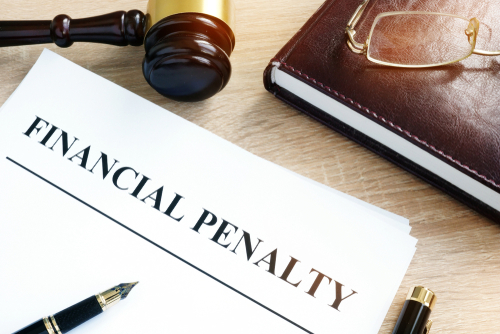Lease agreements are legally binding contracts between landlords and tenants, typically lasting anywhere from six to twelve months, depending on the agreed-upon terms. This means a tenant is legally responsible for living in and caring for their rental property for the entire lease duration. However, that’s not realistic for all tenants. Sometimes, situations arise where you need to move, whether they’re personal reasons or they have some legal validity. Today, we’ll go over what you should do if you want to break your lease early.

Contents of This Article:
- What to Do When You Want to Break Your Lease
- Valid Reasons for Breaking Your Lease
- Potential Penalties for Breaking Your Lease Early
- Create Strong Lease Agreements With BMG
What to Do When You Want to Break Your Lease
Signing a lease for 12 months or more may be ideal for some, but not everyone. For instance, you may want to break your lease if you need short-term accommodations or do not love your living space. Depending on your landlord or property management company in Philadelphia, your options may differ. If you’re thinking about breaking your lease agreement, here are some of the steps to take to break your lease.
- Review Your Lease Agreement
- Communicate With Your Landlord
- Look for a New Tenant to Take Over
- Provide Written Notice
- Seek Legal Advice
Review Your Lease Agreement
If you’re thinking about leaving your rental property, start by reviewing the terms and conditions of your lease agreement. Pay attention to any clauses related to lease termination, early termination fees, and procedures for breaking the lease. Understanding the terms outlined in your lease can help you navigate the process more effectively.
Communicate With Your Landlord
Once you’ve decided that you’re going to break your lease, it’s crucial to communicate with your landlord as soon as possible. Reach out through a written letter, email, or a face-to-face conversation and clearly explain your situation. Be honest and explain why you need to break the lease. This transparency can help your landlord better understand your situation and help you both reach a mutual resolution.
Look for a New Tenant to Take Over
In many cases, landlords may be more open to an early lease termination if you can find a replacement tenant to take over the property. However, you’ll want to check your lease agreement to see if it allows for subletting or assigning the lease to another tenant. If you can, start the process of finding a suitable replacement. Make sure you follow any specific procedures outlined in your lease regarding subletting.
Provide Written Notice
Even if you’ve already spoken with your landlord about moving, providing written notice of your intention to break the lease is crucial. This serves as a formal record of your decision and helps ensure that both parties understand the terms and conditions of the lease termination. You’ll want to include details like the date you plan to move out and any proposed solutions, like finding a replacement tenant.
Seek Legal Advice
If you’re unsure about your rights and responsibilities, or if you encounter difficulties with your landlord, consider seeking legal advice. Consulting with a lawyer or legal professional can provide you with valuable insights into the legal aspects of breaking a lease. They can help you understand your rights, potential liabilities, and how to proceed in accordance with the law.
Valid Reasons for Breaking Your Lease
There are several reasons why you may want to break your lease early. Whether you can no longer afford rent or need a bigger living space, the reasons may be endless. However, only certain instances may have legal validity in a landlord’s or property manager’s eyes. While landlord-tenant laws vary from state to state, here are some common reasons to break your lease without penalty.

- Active Military Duty
- Health or Safety Code Violations
- Landlord Harassment or Privacy Violations
- Domestic Violence or Abuse
Active Military Duty
The Servicemembers Civil Relief Act (SCRA) provides certain protections to military members called to active duty. Under this act, service members can terminate a residential lease without penalty if they receive orders for a permanent change of station (PCS) or deployment that lasts for a specific period. If you find yourself in this scenario, it’s important to provide the landlord with a copy of the military orders and comply with any notification requirements outlined in the SCRA.
Health or Safety Code Violations
If the rental property has significant health or safety code violations that the landlord fails to address, you may have legal grounds to break the lease. These violations may include issues like mold infestations, lead paint hazards, inadequate heating, or other conditions that seriously threaten your health and safety. However, you must follow proper procedures by notifying the landlord in writing and allowing them a reasonable amount of time to address the issues.
Landlord Harassment or Privacy Violations
Harassment or repeated privacy violations by the landlord can create an uncomfortable living environment, which may justify breaking the lease early. For instance, if your landlord enters the premises without notice, cuts off utilities or amenities, changes the locks without notice, or threatens you in any way, you may have legal grounds to break the lease. However, before breaking the lease, you’ll want to document instances of harassment, notify your landlord, and check local laws for procedures to address such issues.
Domestic Violence or Abuse
Some states have provisions allowing victims of domestic violence or abuse to break a lease without penalty. However, these laws usually require tenants to provide documentation, like a protective order or police report, as proof of the situation. If you are in this scenario, familiarize yourself with the specific laws in your jurisdiction and work with local support services if needed.
Potential Penalties for Breaking Your Lease Early
Breaking a legal contract can have some risks. So, if you’re considering breaking your lease agreement, you’ll want to be aware of some potential penalties. Depending on your landlord or property management company, the penalties can vary from minor security deposit deductions to legal battles. Here are some of the potential risks of breaking your lease early.
- Loss of Security Deposit- Landlords may keep some or all of a tenant’s security deposit to cover unpaid rent, damages, or other costs associated with breaking the lease. However, you may face additional charges if the deposit doesn’t cover all the costs.

- Early Termination Fees- Some lease agreements include a provision for an early termination fee. This is often a set amount or a certain number of months’ rent that you must pay if you break the lease before the agreed-upon term.
- Remaining Rent Obligations- You may be responsible for paying the remaining rent for the duration of the lease. Otherwise, landlords may hold you accountable for rent payments until they find a new tenant.
- Legal Consequences- Breaking a lease without following proper procedures outlined in the lease contract or per local laws can result in legal action. You may be taken to small claims court, and a judgment may be issued against you.
- Negative Rental History- Breaking a lease can result in negative references or a negative entry on your rental history, which landlords often share. This can make it harder to secure housing in the future, as future landlords can see that you’ve broken a lease agreement.
Create Strong Lease Agreements With BMG
If you’re a landlord, you know how important it is to collect consistent rental payments. However, if your tenant wants to break their lease, it leaves a lot of uncertainty. That’s why it’s important to have strong lease terms in place for each and every tenant. That way, you can discourage tenants from leaving your property by implementing fees or other penalties for breaking the lease early.
learn how BMG can help your rental business today!
Need help developing strong lease agreements or finding reliable tenants? Bay Property Management Group can help! We offer comprehensive rental management services, including property marketing, tenant screening, maintenance, rent collection, and more. Contact BMG today to learn more about our services throughout Baltimore, Philadelphia, Northern Virginia, and Washington, DC.

